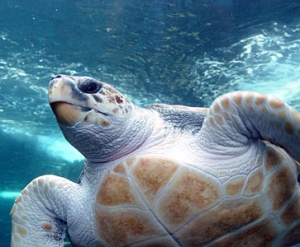PACNEWS
Papua New Guinea foreign minister Rimbik Pato has described the suggestion by Australia opening a foreign mission on Bougainville as totally 'outrageous'.
Pato says while PNG welcome foreign aid and personel supporting its national development efforts, it is clear that some aspects of the ongoing dialogue on peace building on Bougainville among PNG officials and foreign counterparts are seriously inadequate and need immediate review.
“I've directed the acting secretary to call to call in the Australian High Commissioner to explain the media accounts of this mischievous proposal to open a foreign mission on Bougainville”
“I will in turn present the findings to NEC, the earliest opportunity, for their deliberations,” Pato said in a statement.
Pato said priority attention should be given helping ABG to conduct an efficient, free as well as fair election on the island with a view to achieving relevant outcomes under the peace agreement in the long run.
The Australian government Wednesday announced that it will commit A$98.3 million (US$78 million) to open five new overseas missions in consultation with host governments.
In a major expansion of Australia’s overseas diplomatic network, new posts will be established in Doha, Qatar; Buka, Bougainville, Papua New Guinea; Makassar, Indonesia; Ulaanbaatar, Mongolia; and Phuket, Thailand.
The announcement came as part of the Australian Department of Foreign Affairs and Trade (DFAT) annual budget statement for 2015-16.
*****
Australia plans to open a diplomatic mission on Bougainville Island, currently a territory of Papua New Guinea and soon to hold an independence referendum. The island, with vast deposits of copper ore, was an Australian colony until 1975.
This week Australia issued papers on the 2016 fiscal national budget, exposing plans to establish a diplomatic post on Bougainville.
“We were shocked to learn from the budget documents that Australia is planning on establishing a diplomatic post in Bougainville,” said PNG’s Prime Minister Peter O'Neill, as cited by Reuters.
“There has been no consultation on this proposal and there is no agreement to proceed,” O'Neill said at a media event dedicated to 40 years of independence of his country. O'Neill stressed that “Bougainville is an integral part of Papua New Guinea.”
A spokesperson for Australian Foreign Minister Julie Bishop said the proposal was discussed in December and Australia's High Commissioner to Papua New Guinea formally advised the government before the Australian budget was released on Tuesday.
The Autonomous Region of Bougainville is holding presidential elections ahead of an independence referendum. The results of the election that started on Monday will be announced on June 8.
After the election Bougainville will have a five-year window to hold a referendum on independence. Whoever wins the vote will negotiate the date and the exact question with Papua New Guinea.
Bougainville Island and a number of smaller islands scattered around it were governed from Papua New Guinea as a protectorate of Australia from the end of World War I, when Australia occupied then-German New Guinea, Bougainville Island included, under League of Nations mandate. When PNG gained independence in 1975, Bougainville refused to remain part of it and declared independence, which proved to be vain.
The next attempt was made in 1990, yet the opposition from the mainland Papua New Guinea was so fierce that it led to a civil war which lasted until 1998 and resulted in complete blockade of the island. This brought tremendous hardships to its citizens.
A peace deal brokered by New Zealand implied that Bougainville would hold an independence referendum before June 2020.
Bougainville and its neighboring islands have an estimated population of 250,000, comprising many ethnic groups that speak estimated 26 languages. Bougainville’s land area is 9,300 sq km.
Before the civil war, resources giant Rio Tinto ran the Panguna copper mine on Bougainville. The mine was the largest employer and single source of export revenue in PNG, providing up to 7 percent of the world's copper production.
The mine was abandoned in 1991 due to the civil war. Rio Tinto has stated it could resume operations at Panguna if the political situation on Bougainville Island stabilizes.
*****
SOURCE: THE NATIONAL/PACNEWS
Australia has denied an accusation that it failed to consult the Papua New Guinea Government on a decision to open a new diplomatic mission in Bougainville.
A spokesperson for Foreign Affairs Minister Julie Bishop said in a statement to the Australian Broadcasting Corporation she had discussed her proposal to open a secondary post in PNG during a visit in December 2014.
She said Australia’s High Commissioner to PNG had formally advised the PNG Government of its intention to announce a new diplomatic presence in the lead-up to the 2015 budget.
Prime Minister Peter O’Neill said in a speech last Thursday to the Lowy Institute for International Policy in Sydney that he was “shocked” by the announcement by Australia that it was building a new diplomatic mission on Bougainville.
He said there was no consultation about the decision from Australia to build the new diplomatic post and that he learnt about it from media coverage of the budget.
“We don’t want governments to go around creating offices everywhere around the country that will create the wrong interpretation and wrong meaning to our people,” he said.
“We’ve got sensitivities around areas like Bougainville with the elections that are underway at the present.
And of course we are concerned about the message the establishment of this consulate will give to our people in PNG.”
O’Neill was concerned that the move by Australia could influence elections on the island and that his government would prevent the new post from going ahead.
“We have to sanction this,” he said.
“You can’t just go around and open offices at your pleasure.”
O’Neill said Bougainville was an “integral part of Papua New Guinea”.


